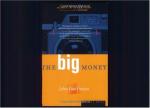|
This section contains 13,014 words (approx. 44 pages at 300 words per page) |

|
Dictionary of Literary Biography on John (Roderigo) Dos Passos
For readers in the 1930s and 1940s the career of John Dos Passos had its puzzling aspects, but the image of the man seemed to possess a certain clarity. He was, according to the dust jackets, "Chicago-born," hence another of the mid-western realists, a regional colleague of Dreiser, Farrell, and Hemingway. Photographs of the author suggested a certain intensity; it was the face of the tough-minded intellectual. Three Soldiers (1921), Manhattan Transfer (1925), and U.S.A. (1938) were clearly indictments of the capitalist system. It appeared obvious that Dos Passos was one of that species even more numerous among European writers than American, the radical intellectual. When Jean-Paul Sartre hailed him as "the greatest writer of our time" in 1938, it seemed a perfectly appropriate mating of author and critic.
But then, so the story went, something seemed to go wrong with Dos Passos. In the later 1930s, his work began...
|
This section contains 13,014 words (approx. 44 pages at 300 words per page) |

|


